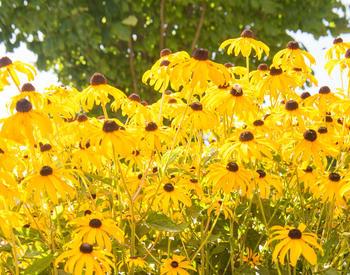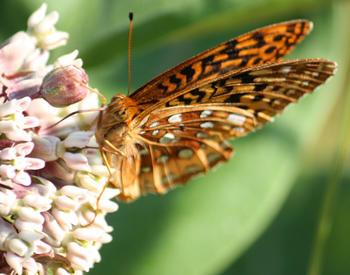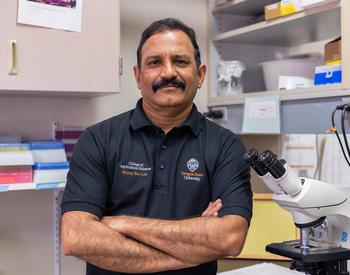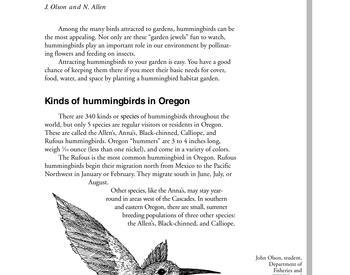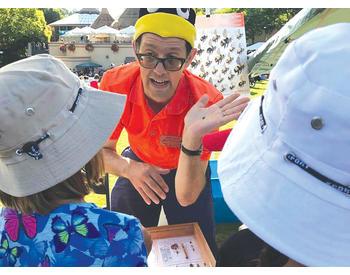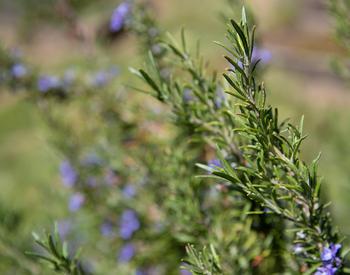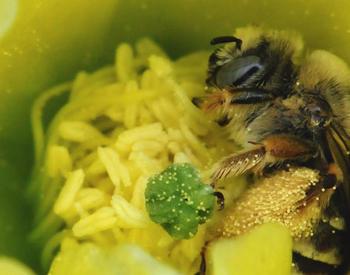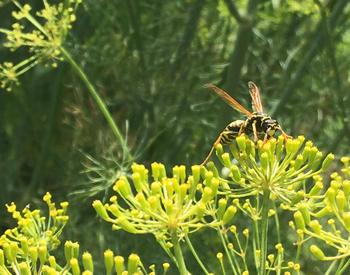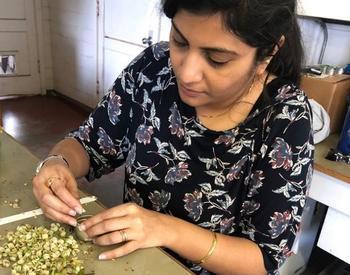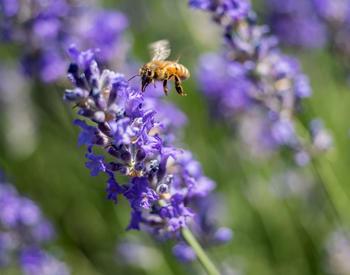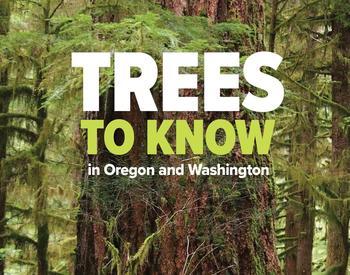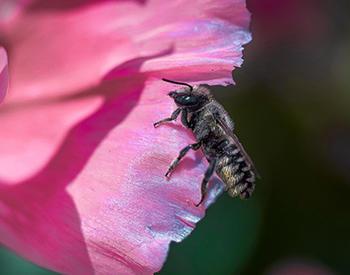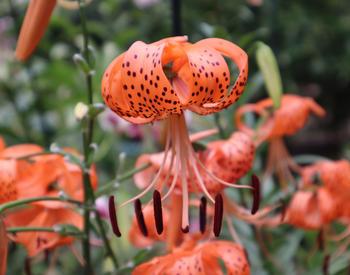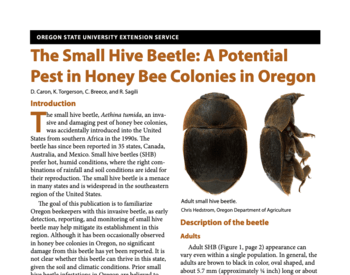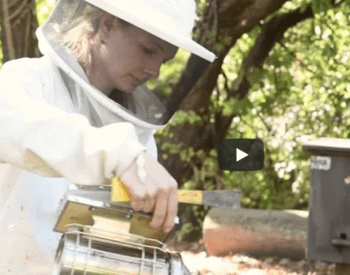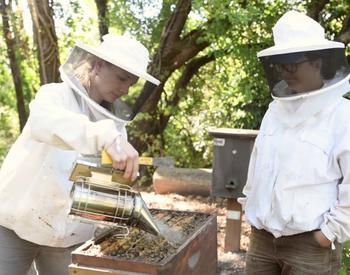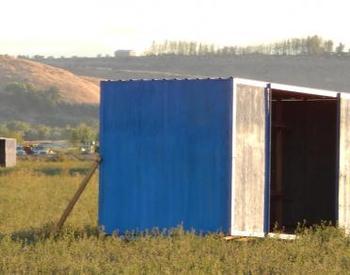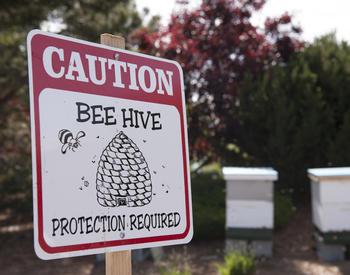Transcript
Speaker 1: From the Oregon State University Extension Service, this is Pollination, a podcast that tells the stories of researchers, land managers, and concerned citizens making bold strides to improve the health of pollinators. I'm your host, Dr. Adoni Melopoulos, assistant professor in pollinator health in the Department of Horticulture. Dear listeners, it's always a pleasure when I finally get to run into one of you and talk to you at a conference or when I see comments in the show notes. I love hearing from you.
And one thing I've learned about you is you're a practical lot. You really want to know what to do, and how to get started with helping pollinators. And boy, do I have an event for you. Registration is just open on Beevent, which is a pollinator conference that happens here in Western Oregon and Albany, Oregon. Today I talked to the organizers of Beevent from Lynn County Master Gardeners, Renee Webb, Susan Morton, and Rich Little. They not only tell us about what to expect at this year's Beevent, but they go on to tell us about what's involved with building a community event like this, something that has brought outreaches. Beevent has really grown over time. And I know a lot of the listeners on the show want to do similar kinds of events in their community.
So this is a really great case study. At the end of the show, one of the real big amazing things that Lynn County Master Gardeners do is Mason Bee culture and training people. So we're going to talk a lot about Mason Bees towards the end of the show. So stay tuned and register for Beevent today. Registration is now open.
I am so excited. Pollination has left the office. We're at the Lynn County Extension Office where I'm with three really remarkable master gardeners, Susan Morton, Renee Webb, and Rich Little, who we're going to be talking about an event that they help organize that's coming up. Beevent, but welcome to Pollination, you three. Thank you. Thank you. Okay, so Beevent is coming up.
Just tell us a little bit. It's going to be happening. Tell us when it's happening. What someone, when they go into, they walk in the door of the Lynn County Barron Expo Center, what are they going to see? What can people expect on March 3rd, right?
Speaker 2: March 3rd is correct. On March 3rd, you'll go to the Expo Center. We chose that place because it is close to I-5, so it's very easy to find. What you're going to do is you're going to, we'll have directional information for you.
You'll walk in and you will find a registration table to come in and sign in. You will also find a lot of vendors. We'll have books, we'll have bee supplies for mason bees.
We'll have also some cocoons that they're very hard to find in many cases. We'll have them a little cheaper than they are at some of the places you do find around town. And then we'll also have a raffle. We'll have some door prizes. A couple of the raffle items are a couple of fantastic quilts that are being made by one of our master gardeners, Ann Capps. Right on. So we're excited about being able to present a lot of stuff.
People can go online at linmastergardener with an s.com and sign up for and register. We're also offering lunch for the first time this year, so you have an option to buy a lunch or just to bring your lunch.
Speaker 1: Okay, that's great. I remember going last year and the one thing that I was struck by, first of all, everything that you sort of want around pollinators is there. There are vendors selling plants, there are booksellers, and then you can get your mason bees. But also it was just the mix of people there. The people who go to BeeVent are the people who really love and care about bees.
Speaker 2: Yes. And we'll be having honey vendors. We will have somebody selling plants again. Shenard's nursery is coming. And we will have somebody that's selling photographs. I believe that's true. We're still working on the vendors, so I can't tell you exactly who's coming. But it'll be similar to what it was, but adding a couple of new people as well. We'll also have some nonprofits, the Benton Soil Conservation, and Water Conservation District people will be there to talk to people about pollinators and about their projects too. I don't remember who else is coming, but there will be quite a few nonprofits as well.
Speaker 1: OK, so what I also remember from last year is there's this really nice seminar. So you get a lot of really great information. And I remember last year had a theme and it seems in the past few years, the way that you've organized the session is around a theme. What is this year's theme? What's the 2018 BeeVent about?
Speaker 3: This coming year, we're going to specialize and emphasize creating a pollinator-friendly landscape in your yard, taking your particular area. I mean, we all live in the Willamette Valley, most of us.
But, you know, my piece of property may be up on the side of the hill and somebody else's is down by a stream bed and a river flat. So take your area and devise a set of plants that will give a succession of blooming to attract pollinators all summer. And we will also have, Rich Little will talk about hard-scaping, some of the other things that pollinators need in addition to flowers. I mean, yes, they like to eat, but we can't live by bread alone and bees can't live by pollen alone. So we need to provide other things that they need.
And he's done a lot of research in this. And then we will also have a session that Renee and I will give on Mason Bee since they're kind of our signature bee. And we do sell the supplies for those.
Speaker 1: And you do a fair amount of training as well. You guys have been already this fall doing last fall, I guess, showing people how to clean cocoons and. Yes.
Speaker 3: Yeah. We host free workshops in the fall to show people how to maintain their bee boxes so that we reduce the parasite and pathogen load. And we put clean bees out the next year.
Speaker 1: OK, so Susan, so people are going to be able to get these, you'll be covering some of this material, but really this focus this year is going to be whether I have a small backyard. I've got a big, you know, I got a little, a small acreage or something in my backyard. I've got some backyard fruit trees. What to do, like what you can do to create an environment that's really nice for pollinators. Yes.
Speaker 3: And not only will you benefit because by attracting pollinators, you're going to get a whole lot more fruit set. I got 500 pounds of apples. Wow. Off of a dwarf apple tree this year. I'm still eating apple sauce.
Speaker 2: Rich has been working on getting speakers for us, so he can probably tell you a little bit about who the speakers are this year, besides Susan and I.
Speaker 1: Yeah, let's see who who who just are lined up to kind of deliver this. Help us get our wrapper head around this problem.
Speaker 4: OK, we have some people from the Oregon floor project, and that are their botanists, their professors over at OSU, and they're going to be taking a morning part of this conference and covering the plant and plant communities and grouping of plants that would be suited for your yard that would give the pollinators the food sources from frost to frost. In other words, we need pollinating plants all season long, not just in the beginning.
Speaker 1: That's great. And I know some of the listeners are familiar because we had Linda Hardison on one of the previous episodes. And I remember in that episode, she really the Oregon floor project in addition to all they are doing really looking ahead to providing resources for gardeners. Yes.
Speaker 4: And she and her crew will be covering the morning session, so they'll take our morning to cover that. Excellent. In the afternoon, in addition to Susan and Renee covering the mason bees, I'll be talking about hard escaping or bees in general, because most people may not realize 70 percent of bees nest in the ground. And so we need to take precautions to protect the ground, nesting sites for bees as well as the cavity nesting sites, and a variety of other things not related to plants that we don't normally think about in terms of creating a space that's safe for bees.
Speaker 1: Yeah, I guess, you know, this came with Gail Lungolato was on the last episode, and she or Bray's this issue up. You know, we don't think, you know, for a lot of us, it's just about what flowers to plant, but there is this whole other dimension. Yes.
Speaker 4: So plants, I mean, bees need more than food. They need a place to sleep. They need a place to rear their young. So your yard has to provide all of that.
Speaker 1: OK, that's great. I suppose, you know, the other part of it as well is that for a lot of us, I mean, I think for many people, honeybees backyard beekeeping is one of the aspects. But when we're dealing with the biodiversity that we have in Oregon, those needs can be pretty diverse.
Speaker 2: What I'm finding whenever I speak to a group and we have, we do go out and speak to groups about basin bees, in particular, is that often the first thing they say is, oh, I have lots of bees. And when I start asking them what kind of bees they have, well, they have honeybees. They see honeybees a lot and they might be aware of bumblebees. But sometimes they're aware of leafcutter bees or maybe a sweat bee. But most commonly it's mostly the honeybee and they think that they can just go out and set up a hive and it'll be very easy. Honeybees take a lot of work. Mason bees two or three hours a year is all you need to do.
And you're providing all the pollination that you need for the fruits in the spring and the berries in the spring as well as other things. So it's a terrific hobby. It's fun to watch and also to be involved in. And we would like to teach more people about that.
Speaker 1: Well, you know, the one thing I do remember from last year is how practical the event is. Like it's not for people who are, you know, have gone to something on bees and it's been rather academic. This is not what the event is about.
Speaker 3: No, it's for home gardeners. Yeah.
Speaker 4: So if you see anybody walking in with a slide, well, they're in the wrong place.
Speaker 2: Now, we're trying to have fun with this. We're trying to make sure that more people are aware of it. Rich has been doing a lot of talking and speaking to places around the country. Susan and I have now gotten involved in doing some of the talks as well.
And hopefully, we can just get a lot more people aware of what they need to do to help all pollinators, not just the Mason bees, although that's one of our big focuses.
Speaker 1: OK, so it's March 3rd. March 3rd. What's the time?
Speaker 2: Well, the registration will open at eight and we'll be done by five, probably done with the speakers by four, but from four to five, we'll be able to do our giveaways. We'll be able to let you have time to go pick up cocoons because we won't give cocoons out right away. They need to stay cold. Or they will hatch. Right. Right. And it's helpful if they come to pick up cocoons, that they bring something cooler to keep the cocoons in.
Speaker 1: OK, and we will again, we'll put the website for registration on the show notes. So listeners, if you want to register and I do recommend registering early, not only to let people know, but you guys have been close to capacity in previous years.
Speaker 3: Yes, we have. One year I had to turn people away and I cried.
Speaker 1: We want no tears. So register early. Rich, you look like you're about to say something. Yes.
Speaker 4: Oh, the other thing I was thinking of is if you have a question about bees or you just are thinking everything I wanted to know about bees, but I was afraid to ask, this is a great place to come and ask.
Speaker 1: OK, on that note, I just let's take a break, but I want to come back because I do think what you guys have put together is unique in the nation. And I know we've had like we had that one question from British Columbia in Canada where people wanted to know, like, how did this get started? So let's take a break and then we'll come back to sort of what was the inspiration for Beevent and where is it headed? OK, we're back.
And listeners, as you may guess, in these breaks, we have these really fascinating, fun conversations that you don't get to hear, unfortunately. But I wanted to come back because I think Beevent is really quite remarkable. I've talked to people recently out east and I was telling about it and they were really astounded that something like this would have taken shape.
So can you tell us a little bit about how Beevent got started? And I guess, you know, a follow-up to that is like, did you really expect that there was this appetite for pollinators when you got started?
Speaker 4: Well, I think it started probably around 2011 when I just became a master gardener and Barb Vex was the extension agent overseeing the program. She walked up to me one day and said, by the way, the. Oregon Master Gardeners Association had a grant.
Or a public project. And she said you ought to think about something you can do with the Mason Bee because you're always telling me to get a lot of questions. So we sat down and we came up with an idea about, OK, we could come up with some classes to introduce people to Mason Bee. And those classes convinced me very quickly that we were on to something because they were popular. A lot of people were coming and they were so full of questions. At half the time I didn't even get to cover the subject matter that I wanted. So that was the basis.
And we began to realize a lot of people were buying commercial setups for Mason Bee and having great success in the first year or two. And then the system would die. And they'd come to me and say, what's wrong? What did I do wrong? Nobody's telling me anything. So there was a huge information gap there.
Speaker 1: I remember the one little anecdote that you gave me in the early days you'd buy the Mason Bees and you get a little sheet of paper the size of a post-it note with instructions.
Speaker 4: That's basically all they got. So they didn't realize there was a lot more to that. And so we decided a bee event would be a good way to do that.
That is to package all this information on an annual basis so we could get that outreach out to the people. And well, that was the beginning. The rest is history.
Speaker 1: And I guess, you know, just thinking about when you as a group sat down and deliberated this and talked with your board, did you have an idea of how big this could be?
Speaker 2: We really didn't. We decided to try it out. We actually started in a small hotel. We got 50 people, 54 people, I think, to the first one. We got 110 for our second event. And then we got 160 or so last year.
We're expecting that we will go to the capacity of 200 this year because it has just grown and more and more people are interested. It's really coming from all over. Yeah, and they're coming from all over. They're coming from Ben. They're coming from Washington State. There we've had a couple of Californians and we've really had a lot of interest. Somebody who came last year had a relative who lives in Virginia and is a, I believe, a butterfly expert.
Is that correct? And he's interested in someday coming and talking about butterflies. So each year we're changing. Rich, do you want to talk about the first year? How do we, what we focused on?
Speaker 4: Well, the first year, most of the focus was on honeybees because that was what most people would think of when we talk about pollinators. So there was a lot of very good, relevant information, but we also used that particular first one as an introduction to mason bees. A lot of people had heard of mason bees, but they didn't know much more about it and didn't realize how easy it was to do in their own backyard.
Speaker 1: So, you know, I guess, you know, one follow-up question to that is, so you started off with just, you know, modest goal, let's get something going on pollinators started with honeybees and mason bees. What do you see as the next steps for something like Bee Vent is, and I guess even this year, it's broader than Mason Bees. Like you're providing some really important information to people on how to create the habitat. What do you see as your next steps?
Speaker 4: Well, we are a pollinator conference and bees are a very important pollinator, but they're not the only pollinators. So I think it's logical for us to start covering some of these other pollinators that people are familiar with, such as butterflies and birds, for example. And so there are ways that they're asking questions along the same thing as a mason bee. What do I need to do to protect these animals in my yard? How can I attract them to my yard?
Speaker 1: Okay, in the course of the development of moving along with this kind of incremental steps you've taken, what have you sort of, if you think about like what has been sort of the signs of success that you know you've had had some impact, what do you, what would you point to?
Speaker 2: I think an understanding of what's needed for bees besides honey bees. Honey bees take a lot of time to take care of the mason bees take two or three hours, but we started teaching some classes on harvesting the mason bee cocoons and people were saying why do you need to do that basically we can save about 90% of the cocoons whereas in nature only about 30% survive. So when people come to these classes they get to see things that they haven't seen before, they get start to understand the importance of doing all of the steps that like Rich said they don't get the the steps when they purchase it, purchase things otherwise.
Speaker 1: You know that's a really good point to the success at being able to just better mason bee husbandry and I guess you know when we think about honey bees we have an extension service, we have an extensions, but we don't have anybody providing these this information to people who are starting off with mason bees.
Speaker 3: Yes we do now.
Speaker 1: Present company. We seem to have had a real nerve with the public.
Speaker 3: There's a lot of hunger out there to do something to help, but people don't know what to do and we're giving them that information, and the analogy I think of is the eastern bluebirds several decades ago they were in terrible decline and the Audubon Society sponsored research and they discovered that what they really lacked was nest sites. They could live very well in the suburbs but suburbs all had new trees that didn't have holes in them and bluebirds and cavity nesters. So they designed nest boxes and sold them cheap or they gave people instructions on how to make them and millions of backyard suburbanites put up bluebird boxes. Nobody told them they had to, there wasn't a rule. It was this just this will help and the bluebird has rebounded big time.
Speaker 1: I think that's a really great point that there's a lot of appetite for bees but people really don't know what to do.
Speaker 3: We're trying to tell them, tell them what they need to know.
Speaker 4: In addition to the bee event we do other things. We have publications from the Oregon State University Extension Service so we're trying to provide a lot of different sources for these people to go to to get this information.
Speaker 1: You know one thing that you mentioned at the break as well was you know one of the measures of success is just general gardening practices.
Speaker 4: Yes it is because I've had a number of people come up to me after some of the classes and presentations and say you know I appreciate all the information about the bees but I didn't realize some of the other things I was doing in my yard was making it unhealthy for some of these pollinators so I think it's going to make me a better gardener because I'm not going to use as much pesticide or if any I keep other things that are suitable for the bees so it just seems like I'm having a healthier yard now.
Speaker 1: Okay so I think to me it's been an I think it's very clear and I think anybody who goes to bee vendors has been around this around you guys knows that the impacts are quite great. We've seen better husbandry, we've seen a change in garden practices, and people who just had a kind of general idea that they wanted to help bees suddenly know exactly what to do. These are really great impacts. So I guess that kind of sets the question up you know it seems like there's a real important role for master gardeners and I'm thinking because we do have listeners across the US and other states it seems like with Polyure Protection master gardeners are really suited to serve a need. What would you say that need is? What do you do really well that nobody else can do?
Speaker 3: We take the academic information because we work through the extension service, and we have access to the research-based information but we're not researchers ourselves or necessarily even scientists, we're home gardeners. We take the information they give us and we translate it into something that a home gardener can use. That's the exact purpose of the extension service anyway and we are part of doing that but we are just home gardeners and so if we don't understand something we'll ask a question and they will make us understand and then we can explain it because we're just home gardeners like everybody else.
Speaker 2: Well the one thing that we were taught when became master gardeners was that there was an expectation that we would go out and teach people things and so I've taught classes on composting and we've taught some things on the good bug, bad bug, that sort of thing but we have gotten very involved Susan and I and Rich in the Mason B part of it and we have been going out and teaching classes throughout the state, throughout the valley, in particular, to garden clubs, to other extension places as well so we're working at doing what our goal was is to be educators of things that we've learned.
Speaker 4: I think the other thing is you people who are out there listening to this you may be thinking you know I would like to grow some healthy food for my family, how do I do this? And that's where you go to the extension because we have a lot of different programs not just this pollinator conference that can give you information that helps you grow a healthy garden and some of you are saying oh I don't have the time you know I don't have the room well believe it or not a garden can be as simple as buying a bag of potting soil, making a cut in it, putting a plant in that bag and watering it, that's a start and then you can go from there so if you really want to grow healthy foods for your family check us out.
Speaker 1: Well I'll have to say as an extension agent you're my resource for whenever I have questions about gardens or anything I come to you and of course the other thing that should be noted is rich is also part of the Oregon Bee Atlas which we need to have a show in the future is training volunteers on bee identification so your knowledge base expands in many many directions. Well, let's take a break I want to come back, and let's pick this up again I've got questions I ask all my guests it's a lot of fun trust me. Okay, we are back I've asked the three of you to think about this we've asked all our guests the same questions first one is book recommendations is there a book that you might recommend I noticed there are a bunch of books here and these are going to be for sale.
Speaker 2: Yes we will have five books plus a booklet from the Oregon Department of Agriculture it is The Common Bee Pollinator of Organ Crops and this is probably my favorite one in some ways for the home gardener because you can see the more common bees that you're out there and then you're not overwhelmed with a huge variety of bees to try to identify so it's a very small little booklet and we will be giving that to the registrants when they come to a copy of that one this year.
Speaker 1: That's a great gift and we really are looking forward to having the author Sarah Kincaid on the show but the thing I do agree with you is it's real simple it has common bees and gives you the size of them it shows you where they're carrying the pollen with a little red it's a very nice book to learn the bees quickly.
Speaker 2: I like that it has a key that shows you the size in relationship to a honey bee because almost everybody knows what a honey bee looks like so knowing what size it is in relationship to that honey bee makes it very usable.
Speaker 1: Okay what are some other books that you're going to be selling at beevent?
Speaker 3: Look we have five titles four are from Xerxes and they are 100 plants for bees. Oh, a great book. Butterfly gardening attracts native pollinators and farming with beneficial insects and that could of course apply to a large home garden too.
Speaker 1: Those are all really great books and we've had them recommended in the past and I remember just an earlier episode with Jessica Cruz on 100 Plants for Bees. It's a really great easy book to kind of like browse through and see some plants.
Speaker 3: And the final one that we have is called Bees in Your Backyard and that is one of my favorites. That is a wonderful book. Richard, Richard you agree.
Speaker 4: I would say if you buy only one book on bees you cannot get a better book than bees in your backyard.
Speaker 1: And I just want to remind listeners I was so proud I think it was our third episode that we had Joseph Wilson talk about the book. So if you haven't heard that interview it's really great and it is it's just the pictures are amazing. The writing is clear. It's just so and then you can I mean there's a key in there that an undergraduate could use like it's actually it's a functional book. It's great.
It's a very good book. Yes. Okay, my next question for you guys is a tool. Is there a tool that you find indispensable for the kind of work that you do?
Speaker 2: Well I'm a little bit prejudiced since I've made my husband help make a lot of the houses which are beautiful by the way.
Speaker 1: And also he's worked a lot on the prototypes and and with the laminated blocks that we offer. And we've gone through a lot of different renditions of that. So I'm kind of thinking maybe houses or the blocks are probably my favorite part of it just having that there where you can watch the bees as they're making their cocoons. One thing I really like about the blocks is the fastening system. It's you know it's always a question with laminated blocks of how you're going to bind them together. And you know when you're a commercial company you might have a strapping machine but there's a real innovative way of holding these blocks together. I really love it.
Speaker 2: Well with the help of my husband and another man that's really been involved too and Rich the three of them collaborated and they came up with this nice bolt system that makes it very easy to take apart but also easy to put back together so that once you've washed the blocks during the cleaning process you can put them back together and keep them from warping.
Speaker 1: Oh and we'll have a picture of it just so you can see this. We'll have a picture of it on the show notes.
Speaker 3: I think my favorite is the laminate block because it's reusable. Oh right. You don't have to fuss around getting new liners or tubes every year. And that to me is very attractive. I have a block system but I have an older one and it does not have the bolts. I have to put a strap on it and I think the bolts are a vast improvement.
Speaker 1: Well I remember one thing we were saying at the break was how beginners really think oh cleaning must be really difficult but you know in a laminate block system it's very easy to clean your cocoon.
Speaker 3: It's much easier to get them out. We have made the tube liners a little easier by finding a way that you can pre-slit them so then they are a little bit easier.
You peel them open kind of like a biscuit can but it's a bit of a mess. We did a whole lot of them when we were doing the ones from our breeder sites. There were about six of us and we cleaned 15,000 cocoons so we know which systems are easier. Yeah so for me my favorite part is having the laminate block. Rich how about you?
Speaker 4: Well I'm going to use a term tool in a very broad sense and that is information as a tool because I think to me the most important tool and the one I get the most out of is the harvesting classes we give in the fall because I think it's at that point that people really start putting together the whole thing about what mason bees are all about. The critical need for sanitation, how you take these blocks apart, how you clean them, how you put them back together, and then coming afterward and said my god this is incredible. I had no idea and they're standing there holding a cocoon in their hand realizing there's a real live bee inside that cocoon that they just took care of.
Speaker 2: Yes I think the other part about the cleaning class that becomes Susan kind of alluded to this earlier that becomes very clear is you watch the different people and how they took care of their cocoons. There's not a whole lot of care actually.
You put up your blocks in March and we can send you information to tell you when to do that we'll give information about that at the bee event but if you don't take them down on June 1st and put them in your garage in a bag or a box you come to the cocoon cleaning classes and you find out that you've got other insects in those blocks you've got possibly mold because they got wet so there are just all kinds of things that they see and they're including some of the pests that are in there so they learn a lot about the pests that affect them and you can actually see those things rather than just hearing about it or somehow seeing them live.
Speaker 1: Oh machine is believing. I think that those are great points I think it's a great suggestion for a tool. We do have to get you guys back on the show for when it's cleaning season to do a show but the other thing I will mention is you have a really great newsletter as well I got it it came into my inbox and said time to clean your cocoons is like oh good I forgot. Bee notes.
Speaker 2: I kind of get on Rich regularly to say Rich it's time to write another bee notes he writes the bee notes for us so he uh yeah and then I do a little bit of editing sometimes if I if I'm in town but we try to get those out to remind people when to do things so Rich puts out at least four or five a year.
Speaker 1: Okay so Renee last question is I'll ask each of you this question do you have a favorite pollinator is there one when it comes I know we love them all but when this one goes by you're like I like that.
Speaker 2: I well obviously right now I'm very excited about mason bees I'm hoping that I learn more about another bee and get just as excited about something else but obviously mason bees are my favorite at the moment. They're amazing bees.
Speaker 3: Well I'm the godmother of 15,000 mason bees and the foster mother of 173 so I'm very fond of mason bees but I think my favorite is bumblebees I just love watching bumblebees.
Speaker 1: I do too and I'm looking for I did get an email from and maybe our listeners out there in Grant's Pass who saw their first we have some very early flushes of bumblebees in Oregon and on the coast there are some records in January so we may be starting to see our first Oregon bumblebees pretty soon in the south coast so Rich are you going to say mason bee as well?
Speaker 4: No I'm a bee guy I look at all the bees and we have hundreds and hundreds of species of bees in Oregon most people don't realize that if I have a favorite bee it's a bee genus called the Perdita which is the smallest bee we have just so you understand how small this is going get a metric stick and look at what two millimeters involves and two millimeters is very very small measurement and that is how small our smallest bee is so the bee will is absolutely incredibly fascinating by the sizes and everything else so that's what excites me or I should say buzzes me.
Speaker 1: Well thank you guys for taking your time I'm really looking forward to Beevent I'm going to be right out there first person in line I really encourage everybody to get the registrations in early and you're going to get all the information on Beevent on the show notes so thanks so much you three for joining us thank you thank you thanks so much for listening show notes with information discussed in each episode can be found at pollinationpodcast.oregonstate.edu we'd also love to hear from you and there's several ways to connect for one you can visit our website to post an episode-specific comment suggest a future guest or topic or ask a question that could be featured in a future episode you can also email us at pollination podcast at organstate.edu finally you can tweet questions or comments or join our Facebook or Instagram communities just look us up at osu pollinator health if you like the show consider letting iTunes know by leaving us a review or rating it makes us more visible which helps others discover pollination see you next week
BEEvent is really without equal in the US. Started in 2014, this annual event provides gardeners and land managers with the practical knowledge and tools to help bee pollinators. The conference is organized by the Linn County Master Gardeners and the 2018 conference (3 March, 2018 in Albany, Oregon) will focus on “Creating a Pollinator-Friendly Landscape in your Garden” (featuring former PolliNation guest Linda Hardison). Andony was joined by three organizers of BEEvent, Ranee Webb (Master Gardener, President of Linn County Master Gardeners 2016-2017), Susan Morton (Master Gardener and “Bee Czar”) and Rich Little (entomologist and Master Gardener).
Listen in to learn more about the BEEvent, Oregon’s pollinator conference, and what this event provides gardeners and pollinator enthusiasts of all kinds.
You can Subscribe and Listen to PolliNation on Apple Podcasts.
And be sure to leave us a Rating and Review!
“There is a lot of hunger out there to do something to help [pollinators], but people don’t know what to do, and we’re giving them that information.” – Susan Morton
Show Notes:
- What’s happening at this year’s BEEvent
- Who the speakers are and what they will be speaking about
- How attendees will learn about caring for a more diverse set of pollinators
- Why the BEEvent is the perfect event for the curious home gardener
- How the first BEEvent got started
- The future of the BEEvent
- What have been the BEEvent’s successes
- The other ways that the organizers contribute to helping pollinators
- How master gardeners can contribute to the cause for pollinators
- What resources the OSU extension service provides
- What gardening and beekeeping resources will be available at the BEEvent
- What are the guest’s favorite books, tools, and pollinators
“Bees need more than food. They need a place to sleep and a place to rear their young, so your yard has to provide all of that.” – Rich Little
Links Mentioned:
- Register for this year’s BEEvent Pollinator Conference
- Check out Linn/Benton OSU Master Gardeners on Facebook
- Sign up for Bee Notes newsletter
- Download “Nurturing Mason Bees in Your Backyard in Western Oregon” by Brooke Edmunds, Rich Little and Ramesh Sagili
- Check out our guest’s book recommendations (available for sale at BEEvent):
- Read about our guest’s tool recommendations:
- Ranee and Susan’s recommendation: Laminated mason bee block (right)
- Rich’s recommendation: Bee cleaning course
- Learn more about our guest’s favorite bees:
- Ranee and Susan’s recommendation: Blue Orchard Bee (Osmia lignaria): Watch how to manage blue orchard bees by The Integrated Crop Pollination Project
- Rich’s recommendation: ground-nesting bees in the Genus Perdita: Watch this video on the recent discovery of new Perdita species
